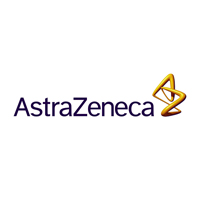AstraZeneca Plc (LON:AZN) announced today positive full results from the DECLARE-TIMI 58 cardiovascular (CV) outcomes trial (CVOT) for Farxiga (dapagliflozin). The data were presented as a late-breaking abstract (#19485) at the American Heart Association (AHA) Scientific Sessions 2018 in Chicago, Illinois, USA, and simultaneously published in the New England Journal of Medicine.1
Results from DECLARE-TIMI 58, the largest SGLT2 inhibitor (SGLT2i) CVOT conducted to date, including more than 17,000 patients across 33 countries, showed that Farxiga significantly reduced the risk of hospitalisation for heart failure (hHF) or CV death composite vs. placebo by 17% (4.9% vs. 5.8%; HR 0.83 [95% CI 0.73-0.95], p=0.005), one of the two primary efficacy endpoints. The reduction in hHF or CV death was consistent across the entire patient population, which included those with CV risk factors and those with established CV disease.
Additionally, there were fewer major adverse cardiovascular events (MACE) observed with Farxiga for the other primary efficacy endpoint, however this did not reach statistical significance (8.8% for Farxiga vs. 9.4% for placebo; HR 0.93 [95% CI 0.84-1.03], p=0.17).
DECLARE-TIMI 58 also confirmed the well-established safety profile for Farxiga, which met the primary safety endpoint of non-inferiority vs. placebo, demonstrating no increase in the composite of MACE, defined as CV death, heart attack (myocardial infarction), or stroke.
Further, on other relevant safety measures, the trial showed no imbalance with Farxiga vs. placebo in amputations (1.4% vs. 1.3%), fractures (5.3% vs. 5.1%), bladder cancer (0.3% vs. 0.5%) or Fournier’s gangrene (1 case vs. 5 cases). The respective incidences of diabetic ketoacidosis (0.3% vs. 0.1%) and genital infections (0.9% vs. 0.1%) were rare.
Elisabeth Björk, Vice President, Head of Cardiovascular, Renal and Metabolism, Global Medicines Development, said: “These positive results are clinically relevant to the 425 million people worldwide living with diabetes, of whom those with type-2 diabetes have a two-to-five times greater risk of heart failure along with an increased risk of a heart attack or stroke. Heart failure survival rates are only 50% after five years from diagnosis, which is why these new findings are so important in broadening our understanding of how to go beyond blood glucose so we may better address this serious and often overlooked cardiovascular complication.”
Although secondary endpoints were only nominally significant, the renal composite endpoint showed that Farxiga reduced the rate of new or worsening nephropathy1 by 24% vs. placebo across the broad patient population studied (4.3% vs. 5.6%; HR 0.76 [95% CI 0.67-0.87]), and there were fewer all-cause mortality events with Farxiga vs. placebo (6.2% vs. 6.6%; HR 0.93 [95% CI 0.82-1.04]).
About DECLARE-TIMI 58
DECLARE (Dapagliflozin Effect on Cardiovascular Events)-TIMI 58 is an AstraZeneca-sponsored, randomised, double-blinded, placebo-controlled, multicentre trial designed to evaluate the effect of Farxiga compared with placebo on CV outcomes in adults with T2D at risk of CV events, including patients with multiple CV risk factors or established CV disease. DECLARE included more than 17,000 patients across 882 sites in 33 countries and was independently run in collaboration with academic investigators from the TIMI study group (Boston, USA) and the Hadassah Hebrew University Medical Center (Jerusalem, Israel).
About DapaCare
DECLARE is part of the extensive DapaCare clinical programme for Farxiga, which will enrol patients in randomised clinical trials including a wide range of mechanistic trials and is supported by a multinational real-world evidence study (CVD-REAL). The DapaCare clinical programme will generate data across a spectrum of people with CV risk factors, established CV disease and varying stages of renal disease, both with and without T2D. DECLARE is paving the way for three Phase III trials: Dapa-HF, DELIVER and Dapa-CKD. Farxiga is not indicated to reduce the risk of CV events, CV death, or hHF, or the treatment of CKD.
About Farxiga (dapagliflozin)
Farxiga is a first-in-class, oral once-daily selective inhibitor of human sodium-glucose co-transporter 2 (SGLT2) indicated as both monotherapy and as part of combination therapy to improve glycaemic control, with the additional benefits of weight loss and blood pressure reduction, as an adjunct to diet and exercise in adults with T2D. Farxiga has a robust clinical trial programme of more than 35 completed and ongoing Phase IIb/III trials in over 35,000 patients, as well as more than 1.8 million patient-years’ experience.
About AstraZeneca in Cardiovascular, Renal & Metabolism (CVRM)
Cardiovascular, renal and metabolism together form one of AstraZeneca’s main therapy areas and a key growth driver for the Company. By following the science to understand more clearly the underlying links between the heart, kidneys and pancreas, AstraZeneca is investing in a portfolio of medicines to protect organs and improve outcomes by slowing disease progression, reducing risks and tackling co-morbidities. Our ambition is to modify or halt the natural course of CVRM diseases and potentially regenerate organs and restore function, by continuing to deliver transformative science that improves treatment practices and cardiovascular health for millions of patients worldwide.
About AstraZeneca
AstraZeneca is a global, science-led biopharmaceutical company that focuses on the discovery, development and commercialisation of prescription medicines, primarily for the treatment of diseases in three therapy areas – Oncology, Cardiovascular, Renal & Metabolism and Respiratory. AstraZeneca operates in over 100 countries and its innovative medicines are used by millions of patients worldwide.








































